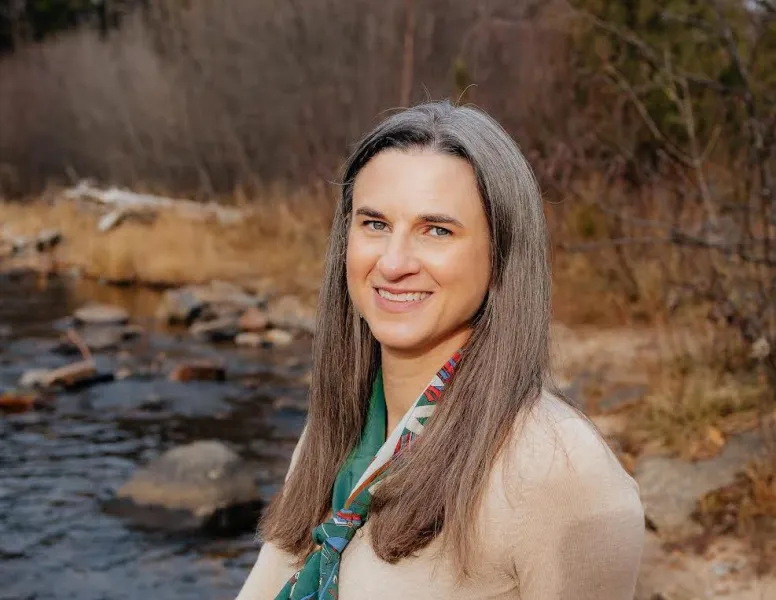Northern Michigan University English Professor Amy Hamilton was recently elected co-president of the Association for the Study of Literature and Environment. ASLE is an international, interdisciplinary community of scholars interested in the natural world, its representation in language and culture, and the complexities of humans' relationships with their surroundings.
ASLE was founded in 1992 by a small group of scholars interested in nature writing. It has since exploded in global reach, with members in dozens of countries. It has also expanded its scope beyond literature to the broad umbrella of the humanities and arts. ASLE hosts a biennial conference and publishes a quarterly journal highlighting current research in the rapidly evolving field.
Hamilton said the organization's mission aligns with the ecocriticism writing that has defined her career, and with NMU's new Master of Arts in English concentration of literature and the environment. She joined ASLE in 2005 because of her longtime interest in how the “more-than-human” physical world—animals, trees, sunlight, wind, etc.—is portrayed in literary works.
“We often think of literature as reflection, and it certainly is that,” she said. “There's also the argument that literature has an active hand in creating the world and how we live in it. Perhaps the best-known example of this, as it relates to ecocriticism, is Rachel Carson's book Silent Spring [published in 1962]. She warned the public about the harmful effects of pesticides on the environment and human health. Her book became a bestseller, swayed public opinion and had a direct impact on policy, contributing to a nationwide ban of DDT. That demonstrated the active way literature and criticism can be part of how we understand and inhabit the world.”
Hamilton's 2018 monograph Peregrinations: Walking in American Literature was a finalist for ASLE's Ecocriticism Book Award. It explores how the experience of traveling by foot is depicted in American texts from a cross-cultural perspective.
Her most recent peer-reviewed publication titles are: “Colonialism and Gendered Violence in the Grassy, Bloody West,” “Imagined Deserts, Planned Communities, and Escape Pods in the American West,” “Climate and American Indian Literature,” “Gender, Affect, Environmental Justice, and Indigeneity in the Classroom,” and “‘This world that walks': Cultural Destruction, Cultural Renewal, and Social Justice on the Trails of North American Indigenous Removal.”
Along with co-president Nicole Seymour of California State University, Fullerton, Hamilton will help coordinate ASLE's next conference in 2025. They will also run retreats with other officers, guide ASLE initiatives and help determine the organization's emphasis moving forward.
In their joint welcome statement on the ASLE website, Hamilton and Seymour referenced their commitment to center the topic of housing, mobility and the environment in future initiatives. The topic came up in conversations last summer related to the crisis of unhoused people in Portland, Ore.
“We also hope to reinvigorate the Advocacy and Activism Committee with a new charge of local engagement with future conference sites,” their statement continued. “We believe this charge must entail centering Indigenous presence, knowledge and sovereignty. We pledge to engage with local tribal leaders and organizations and to collaborate with and support Indigenous scholars and scholarship at the conference. We will also explore other possibilities for local conference site engagement, including field trips, a day of service and fundraising or letter-writing campaigns.”
Hamilton is also active in another related organization, the Western Literature Association, and serves as the editor of its journal.

